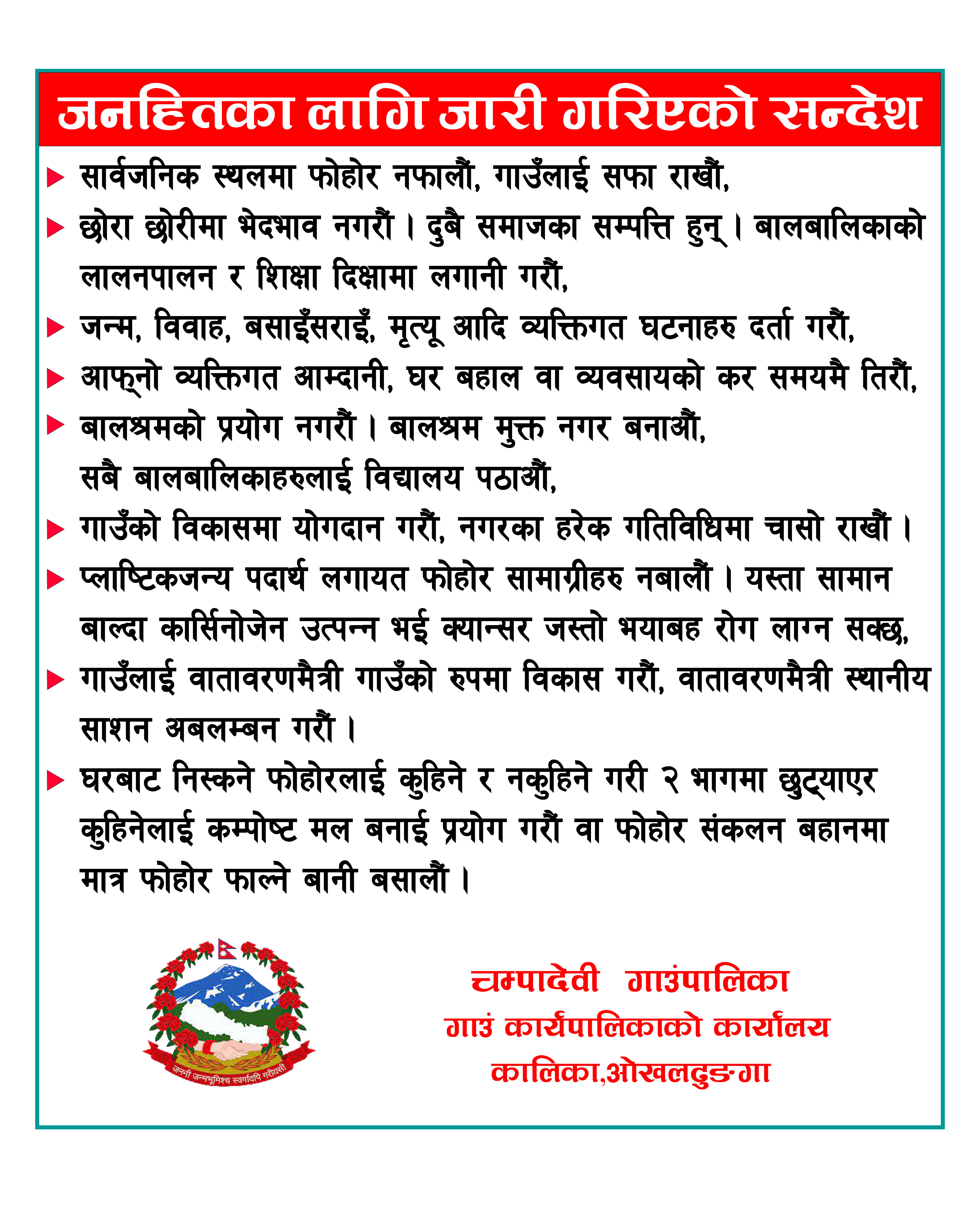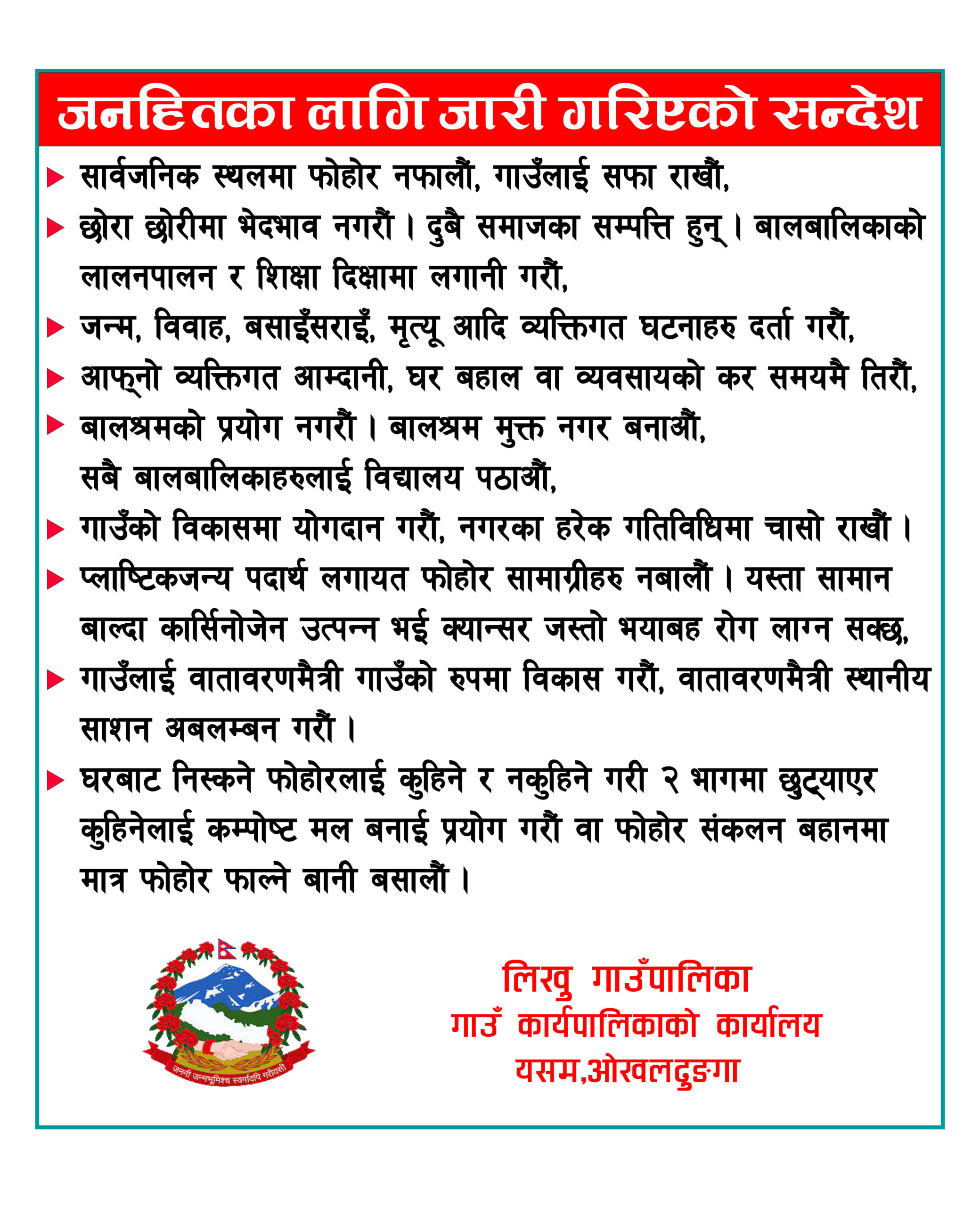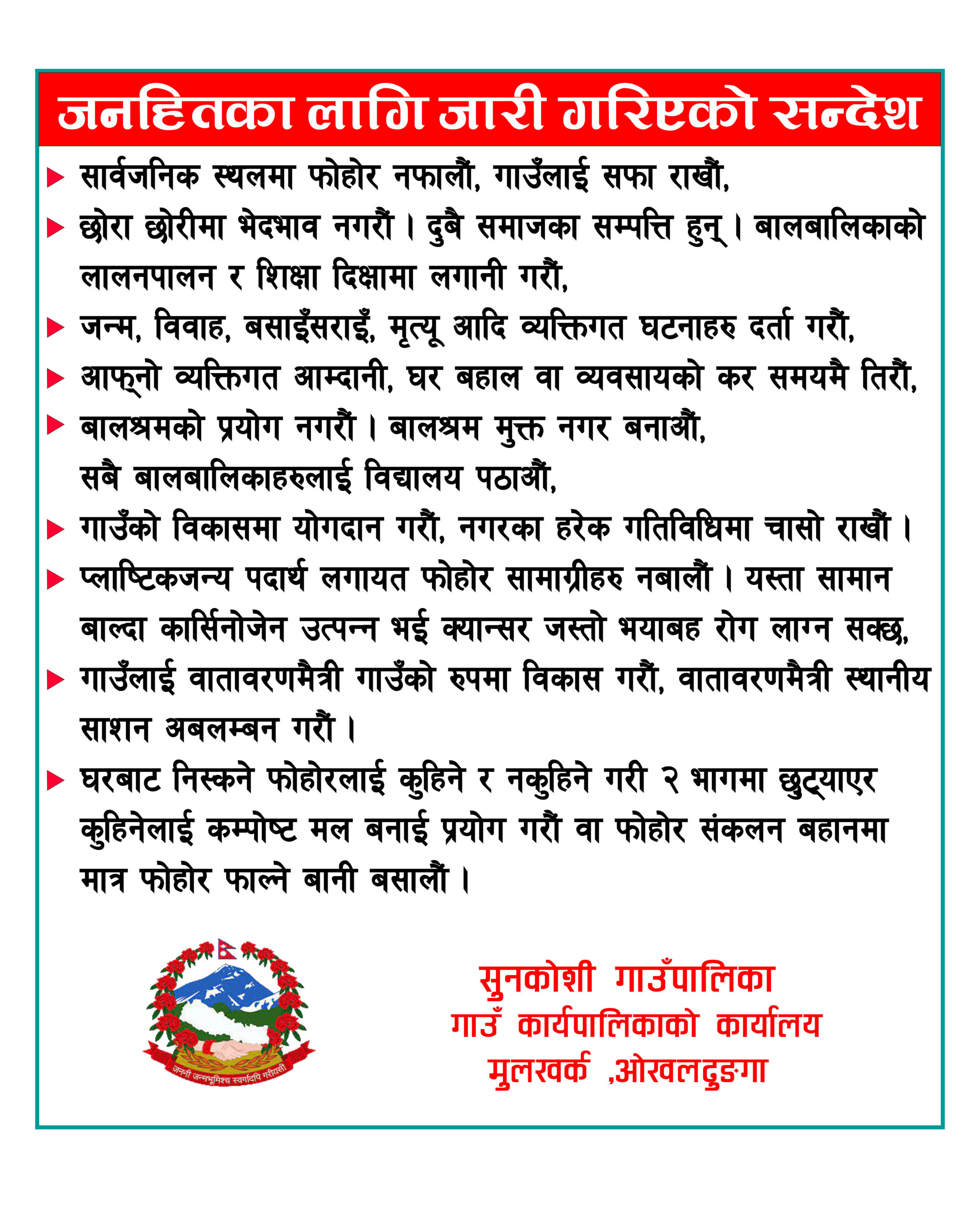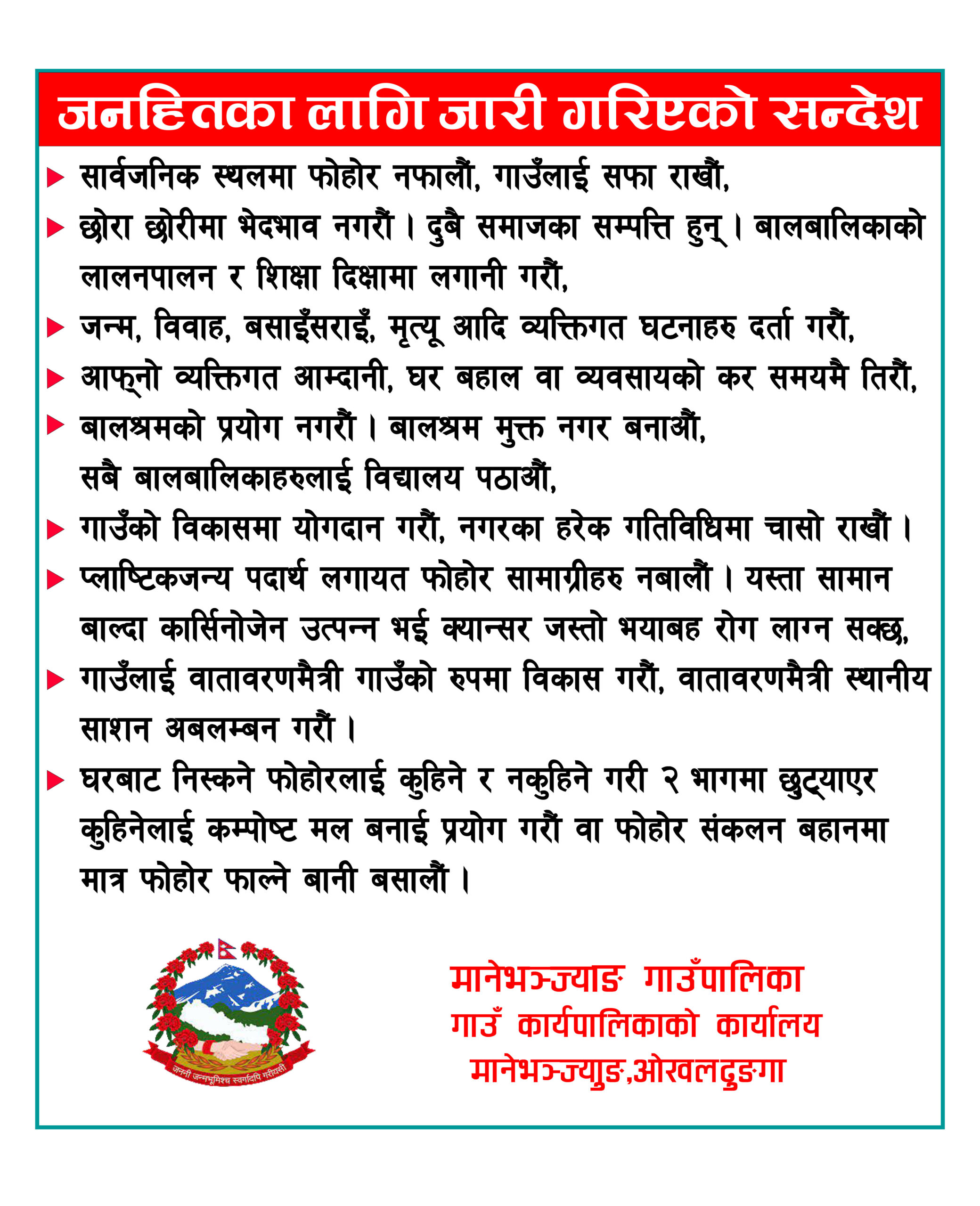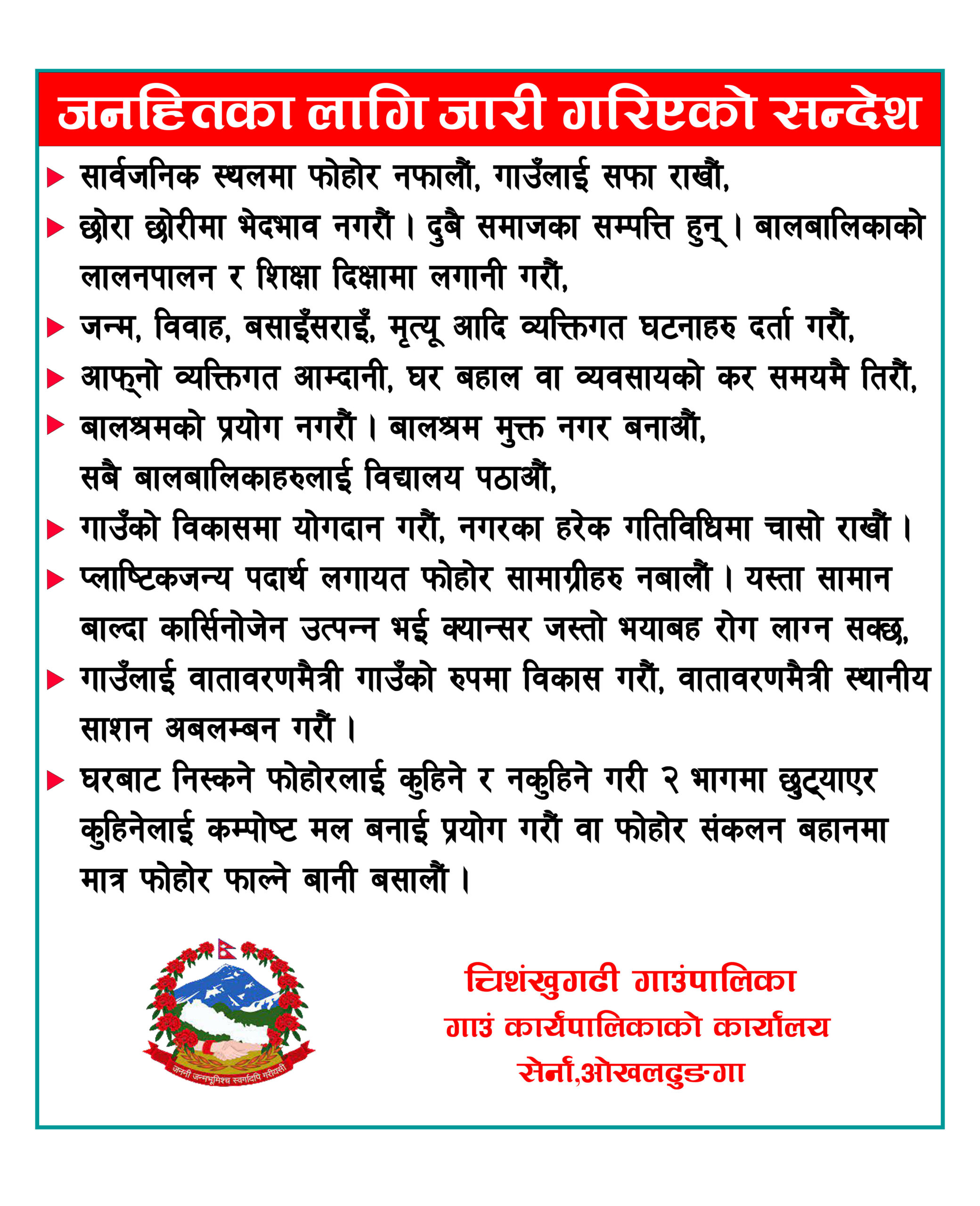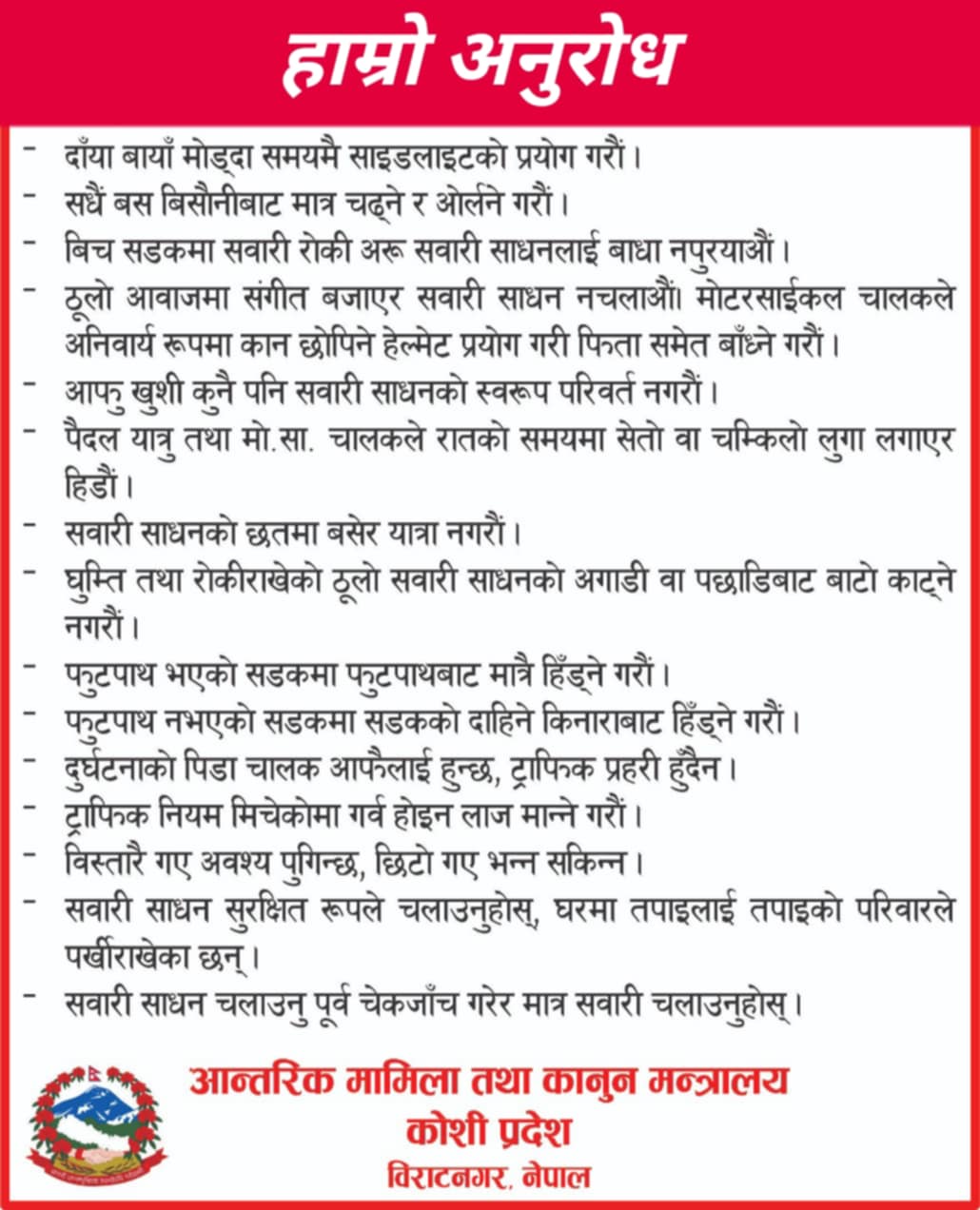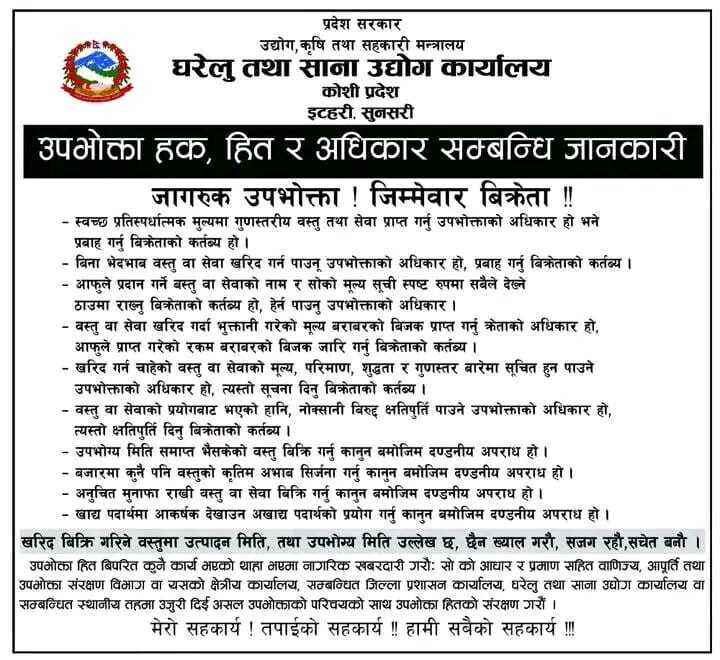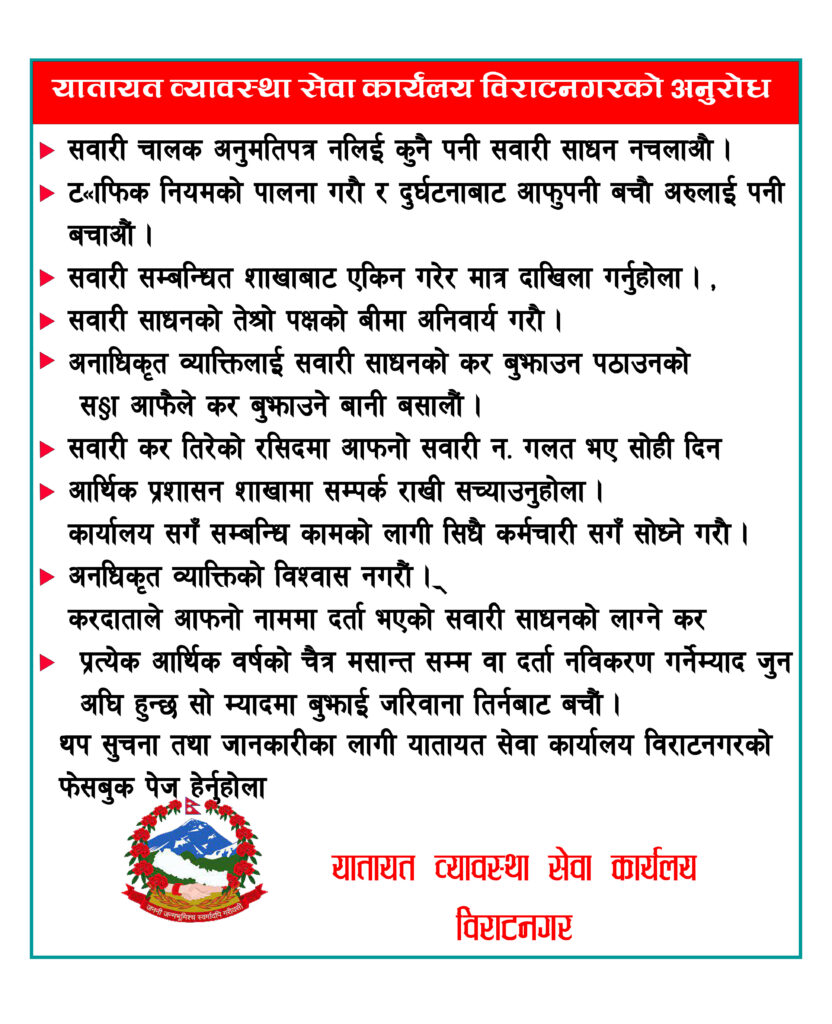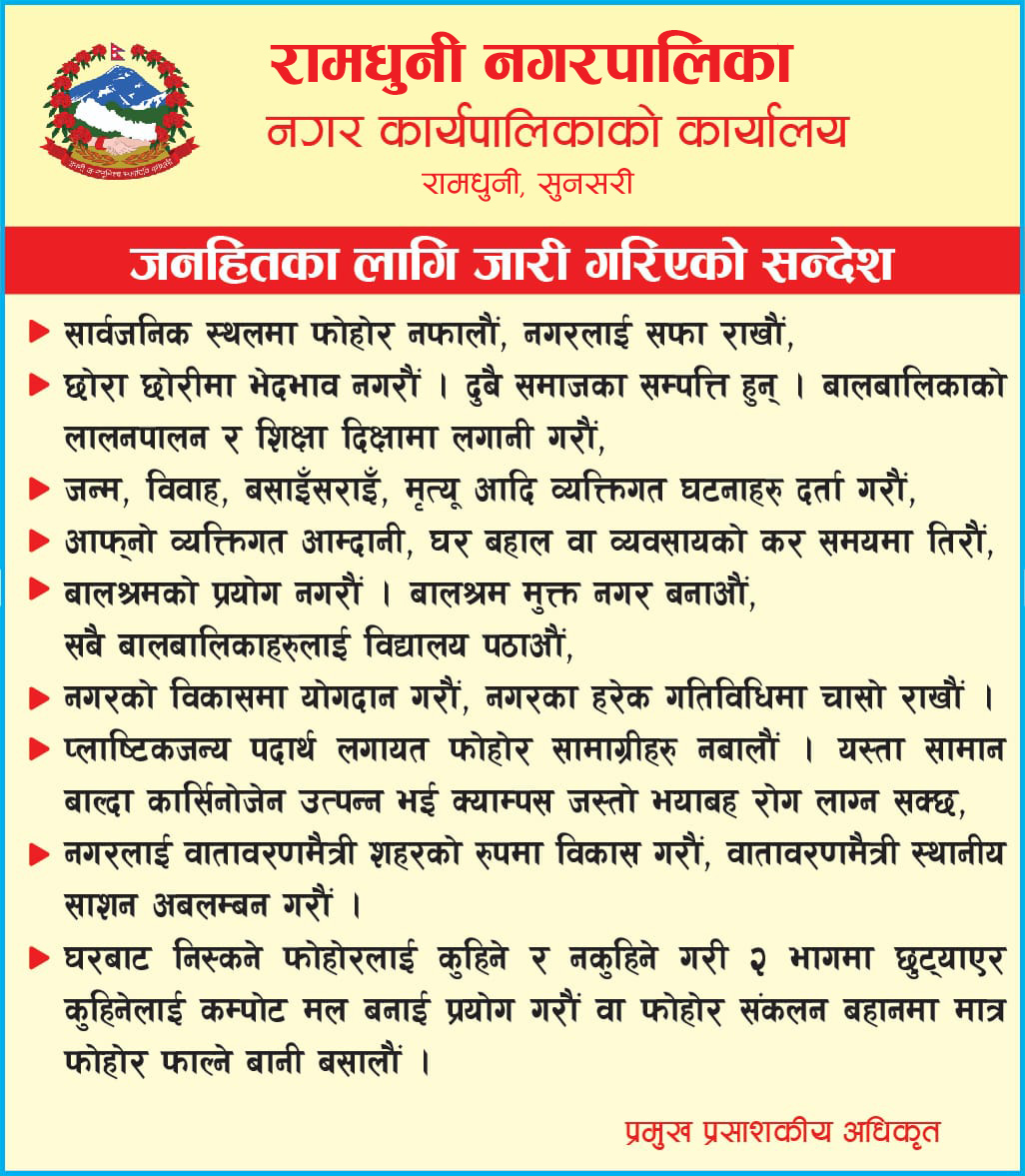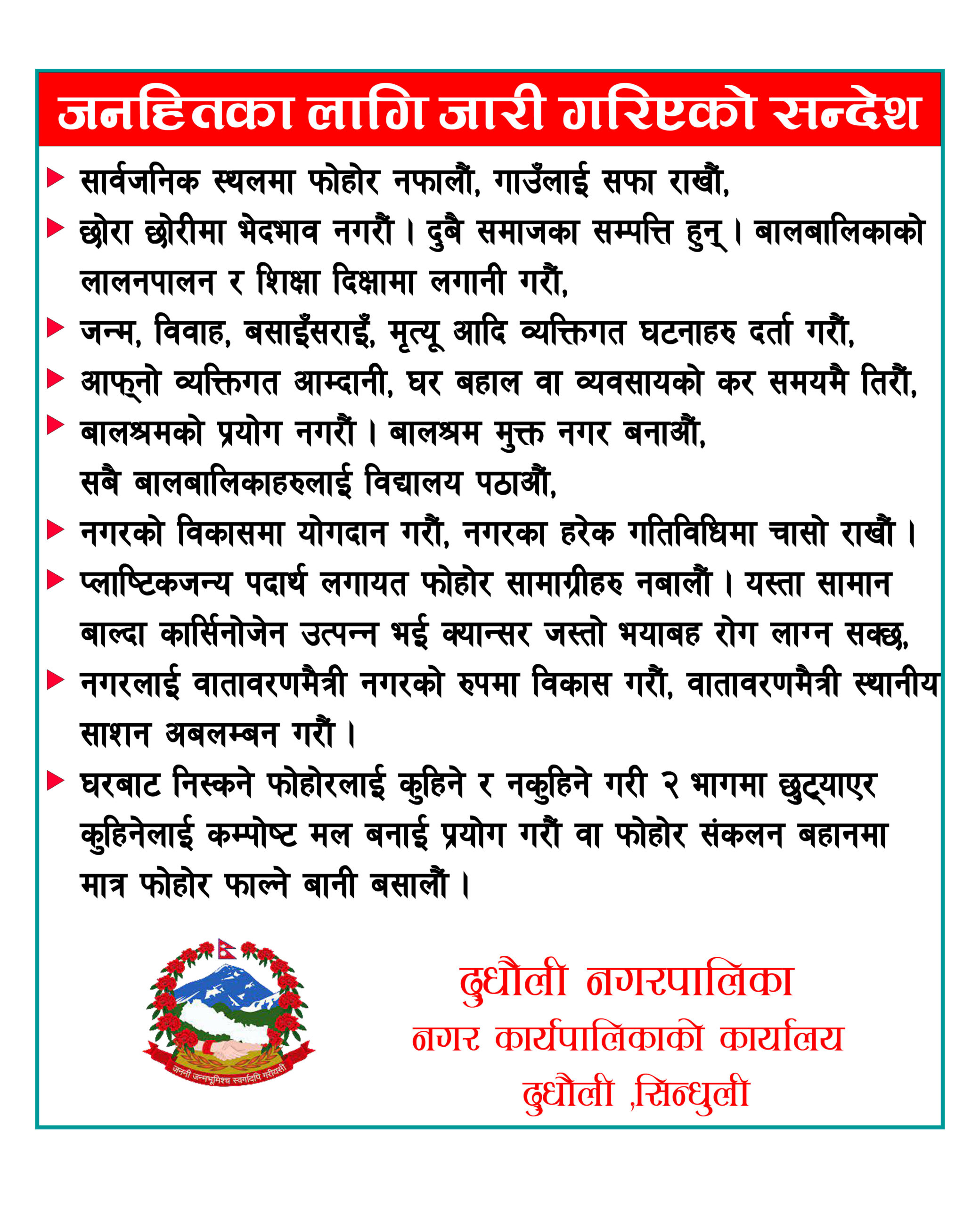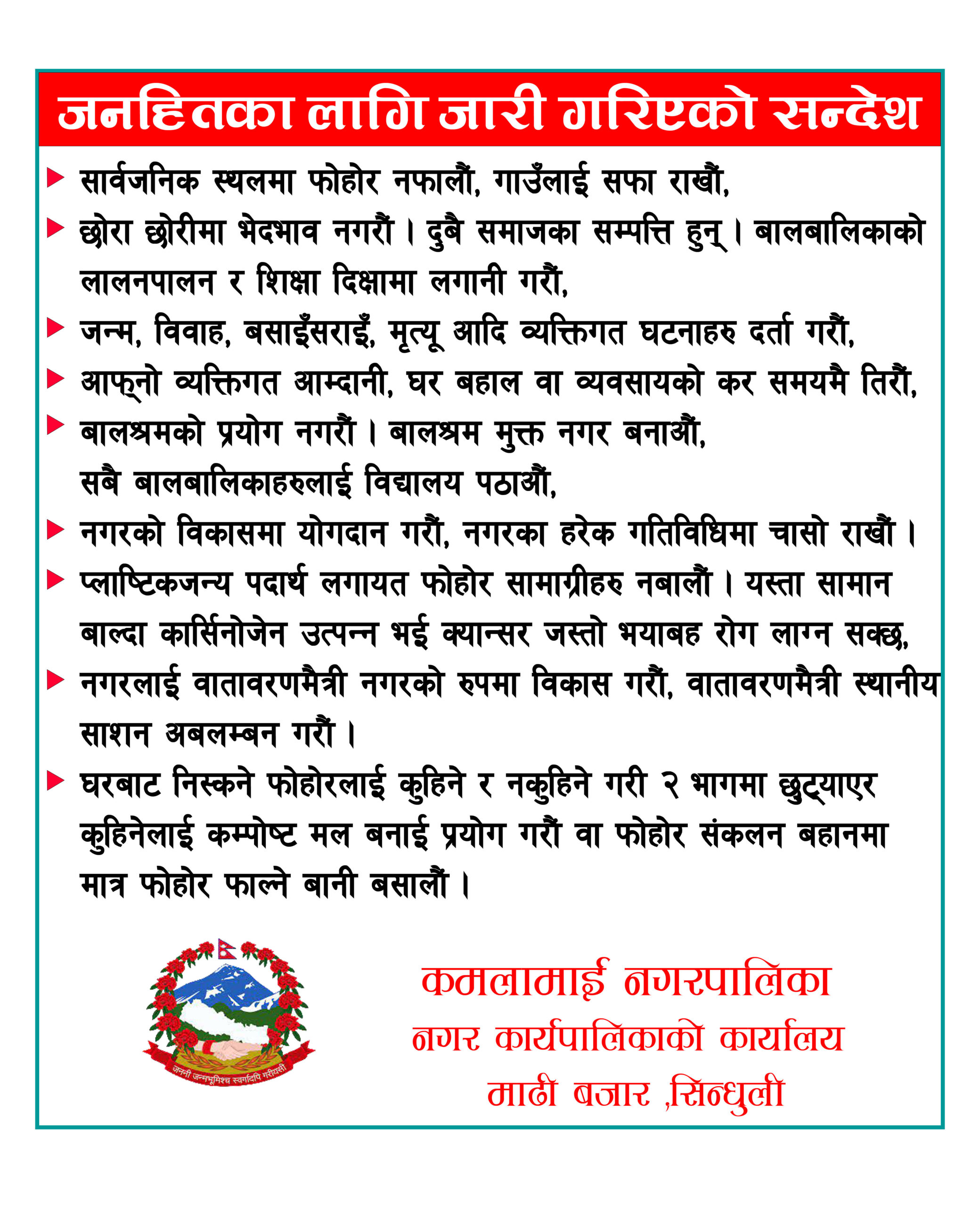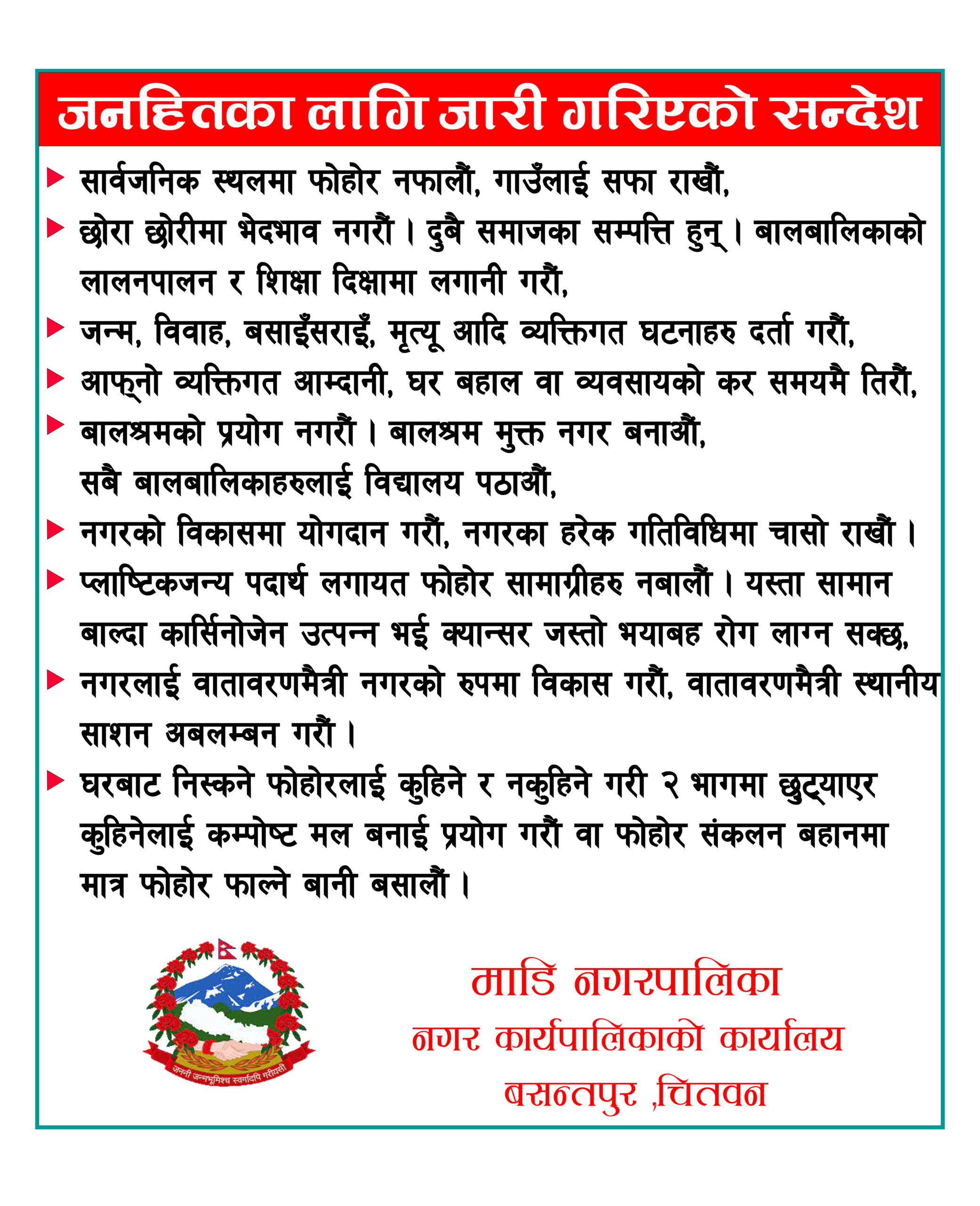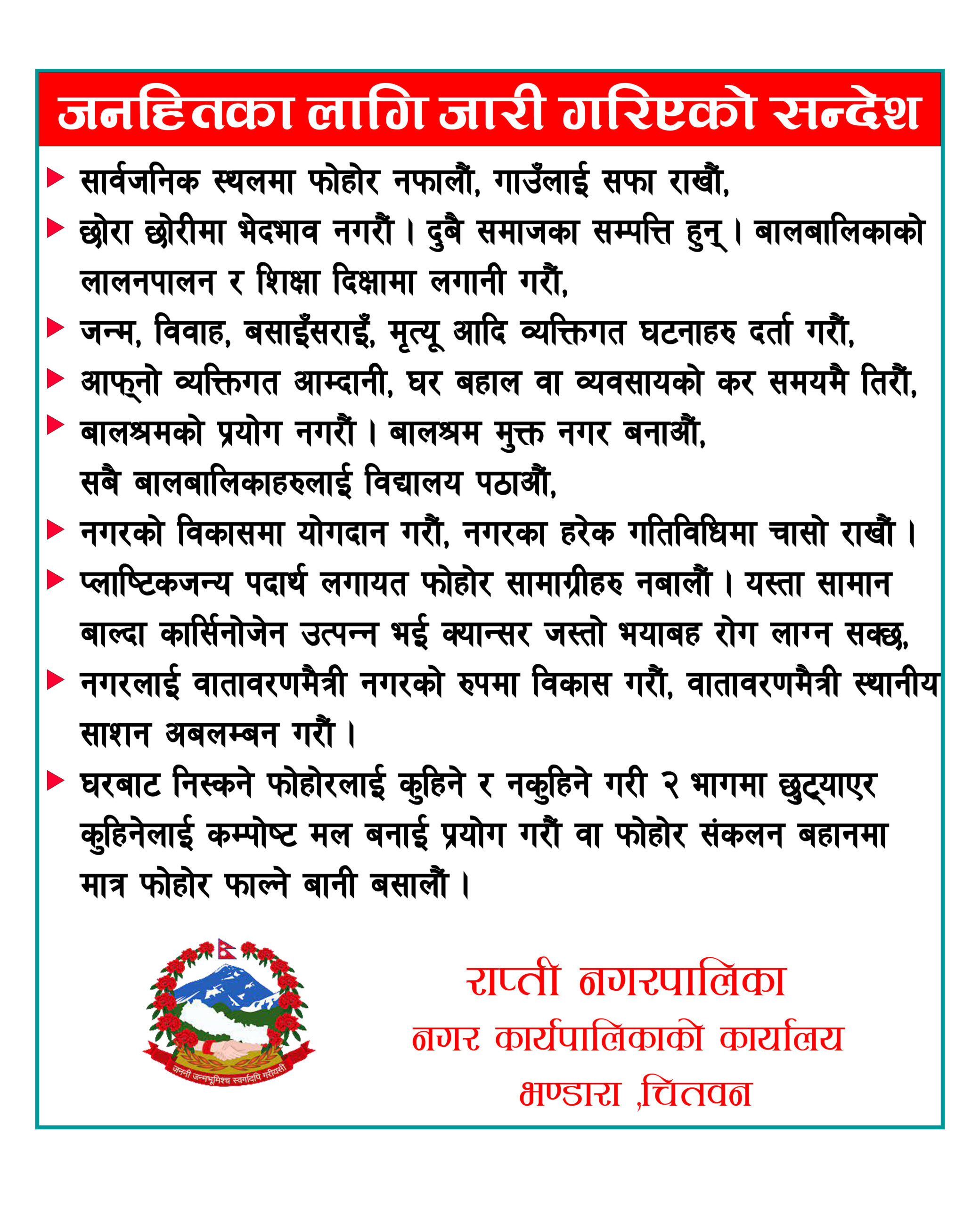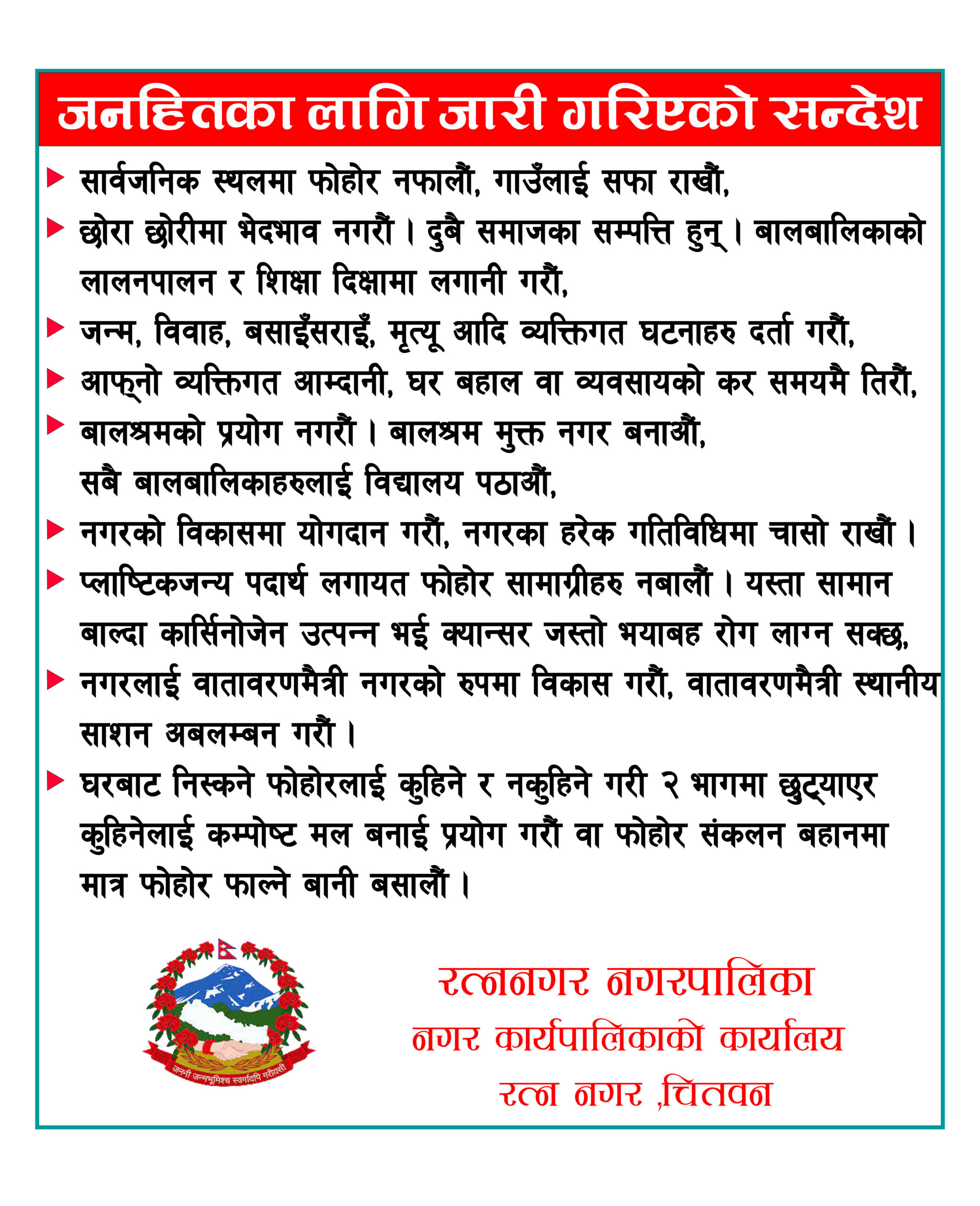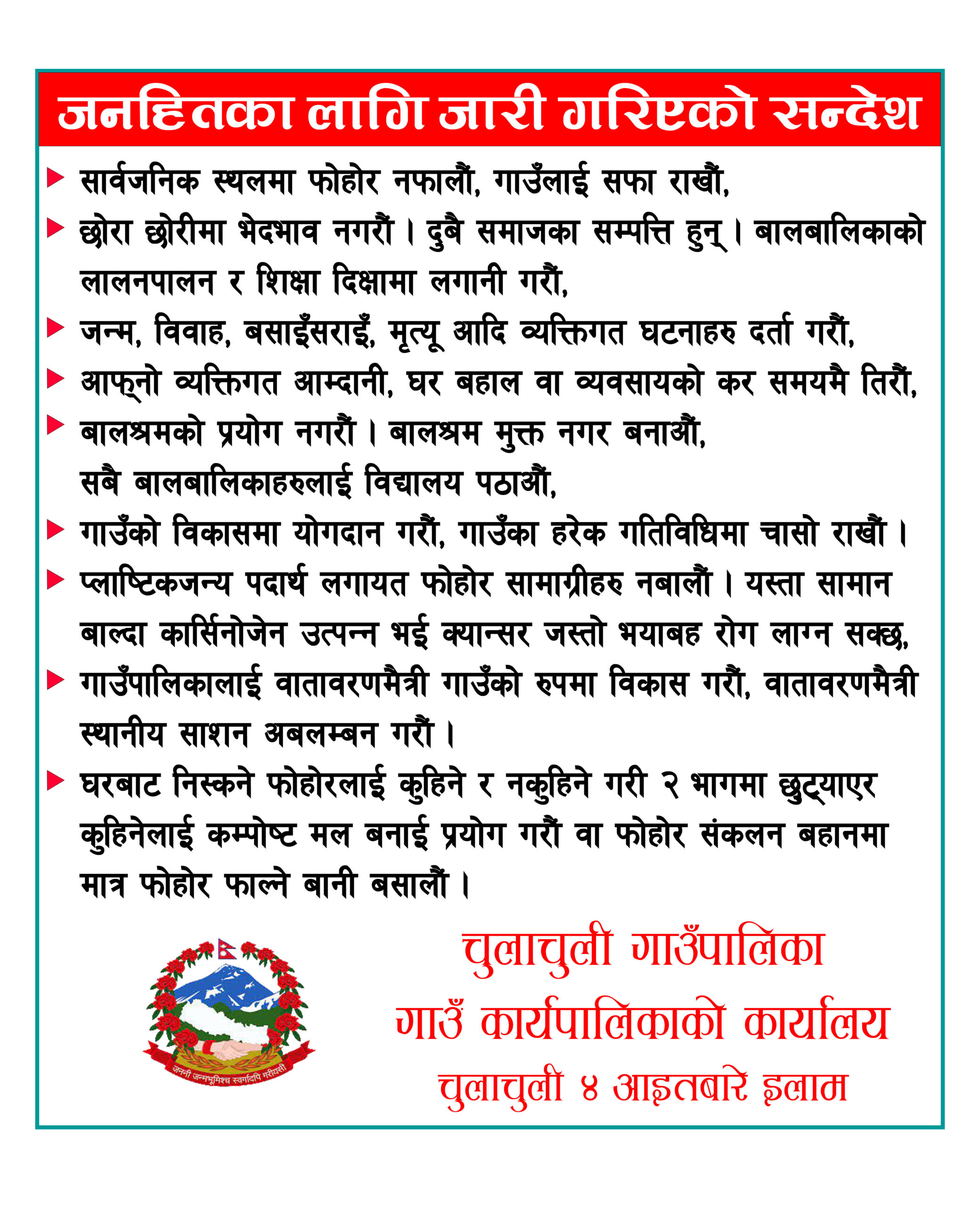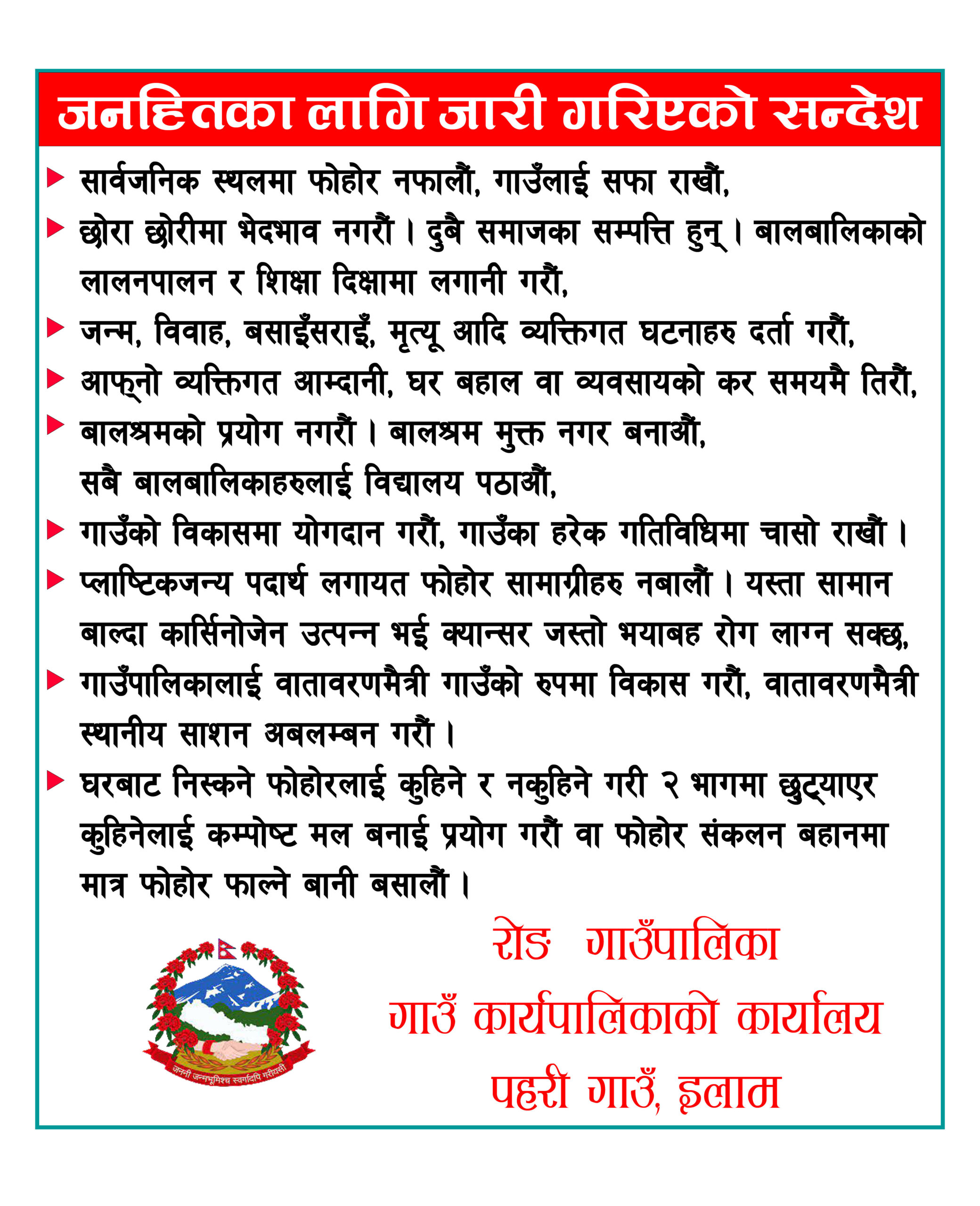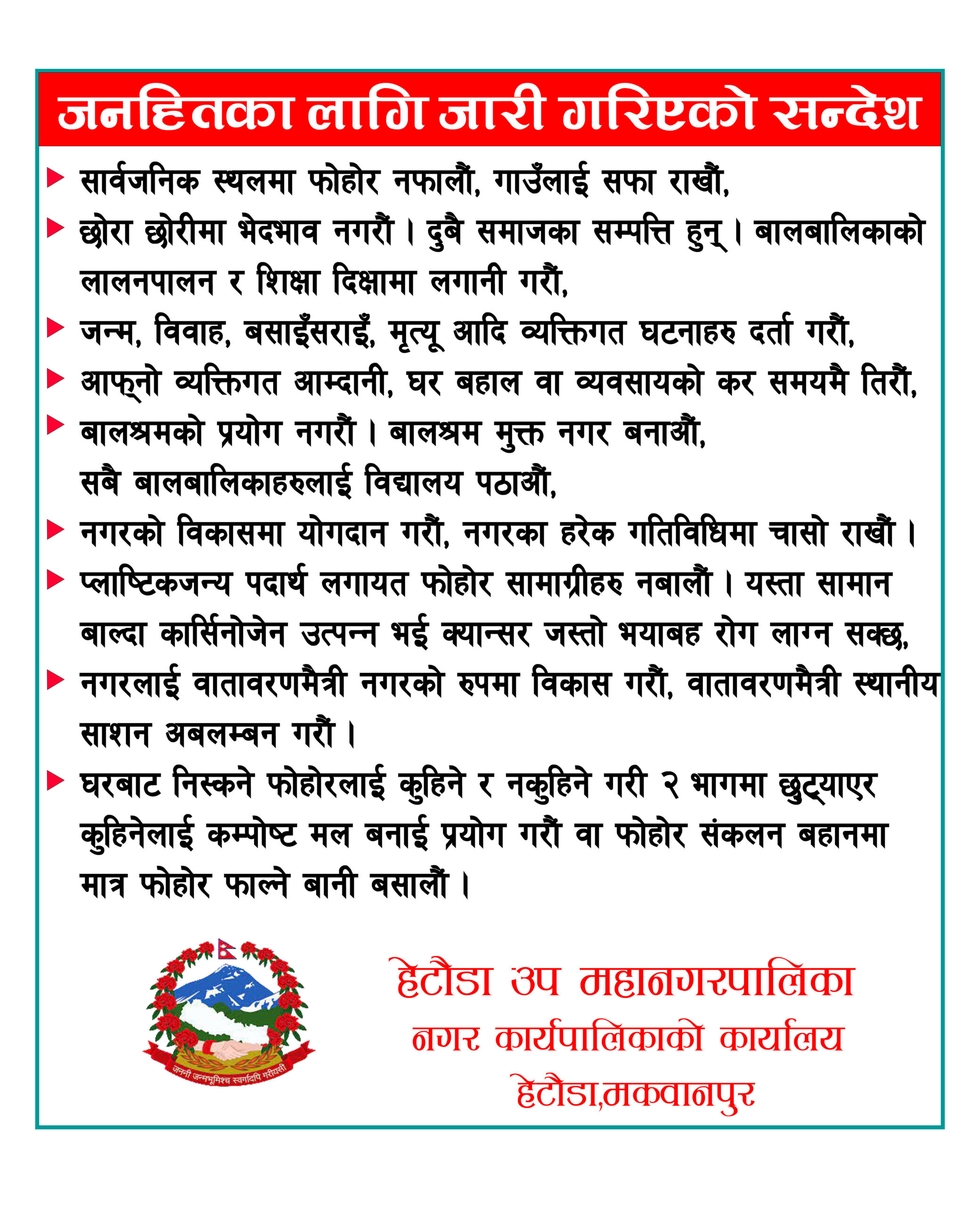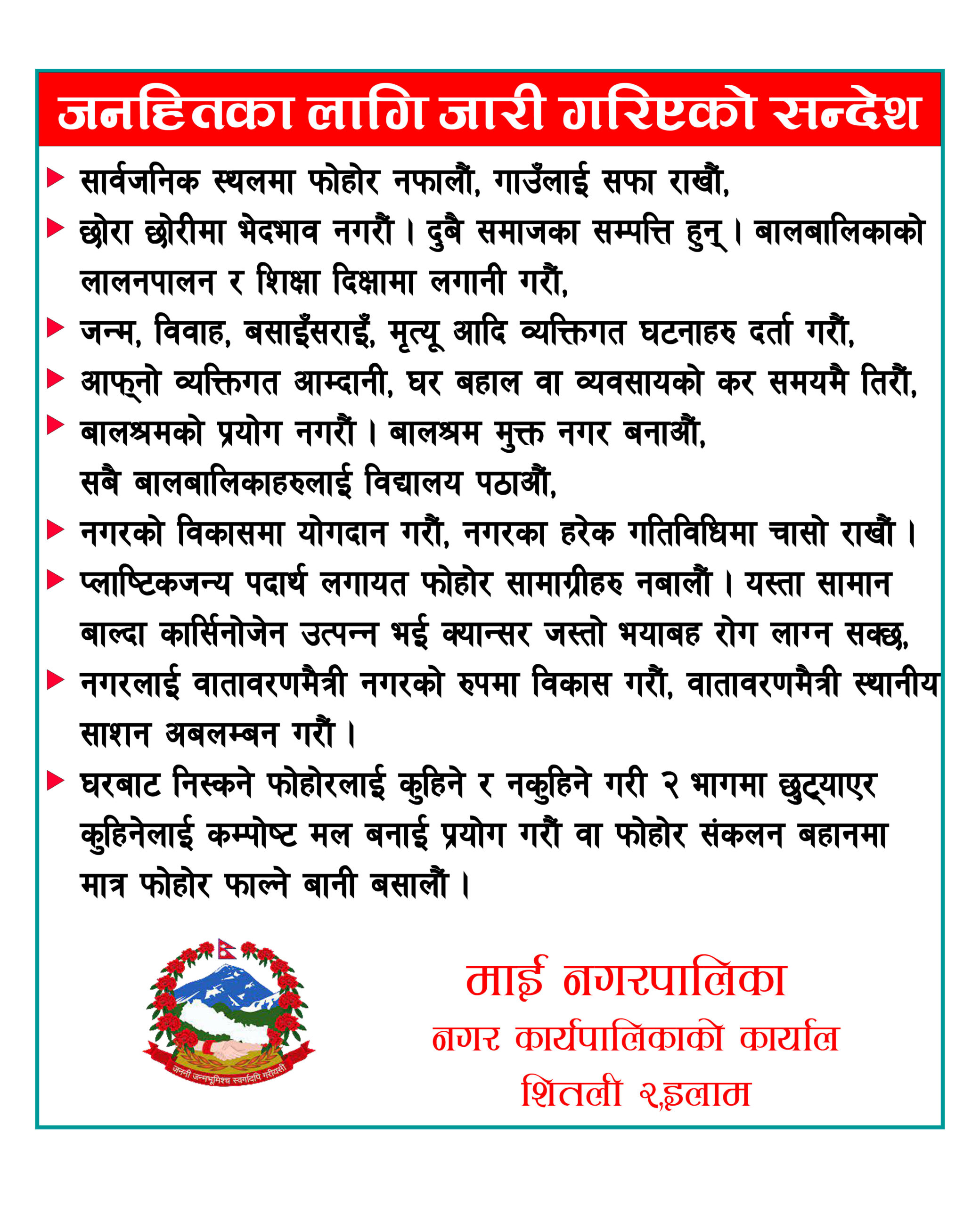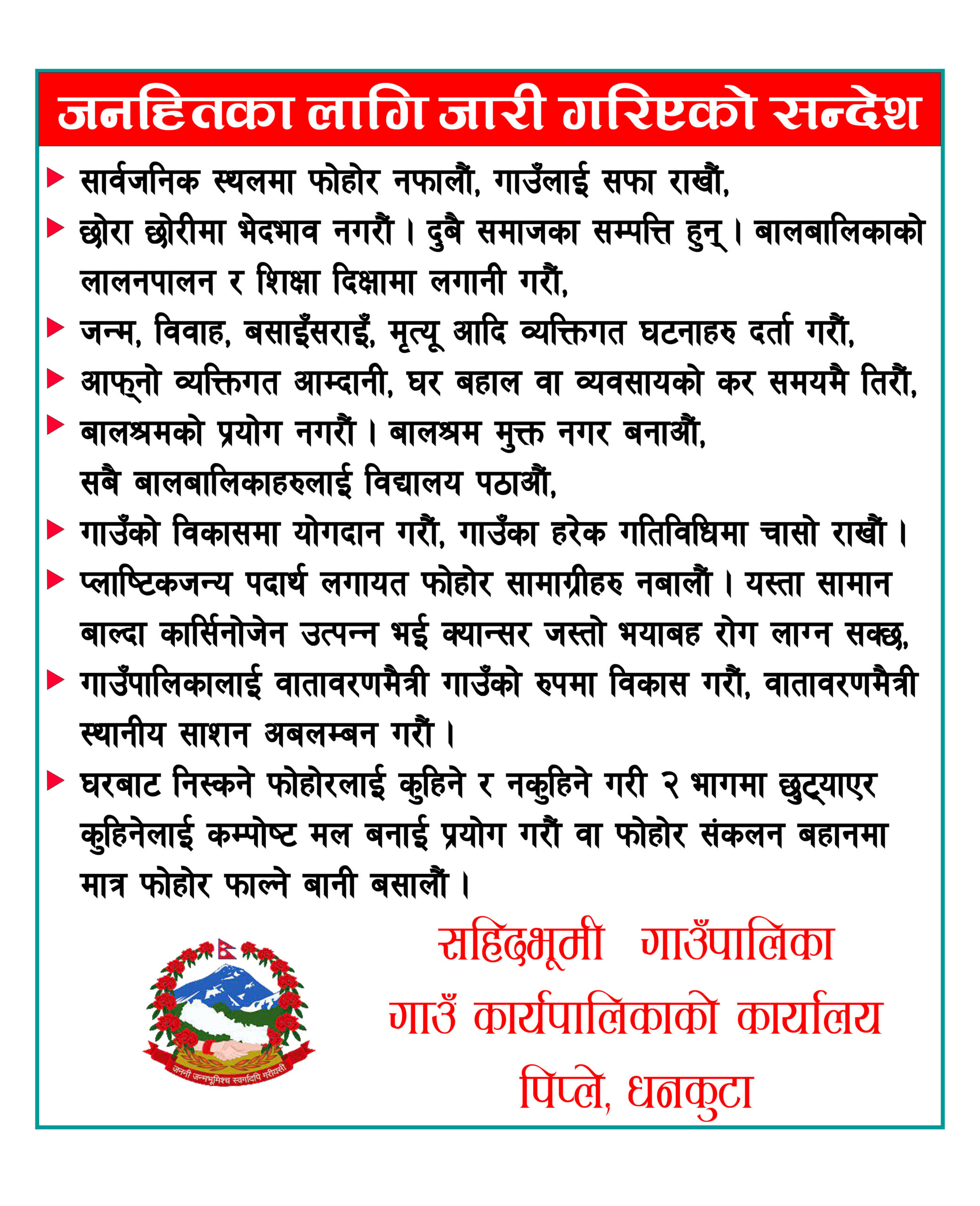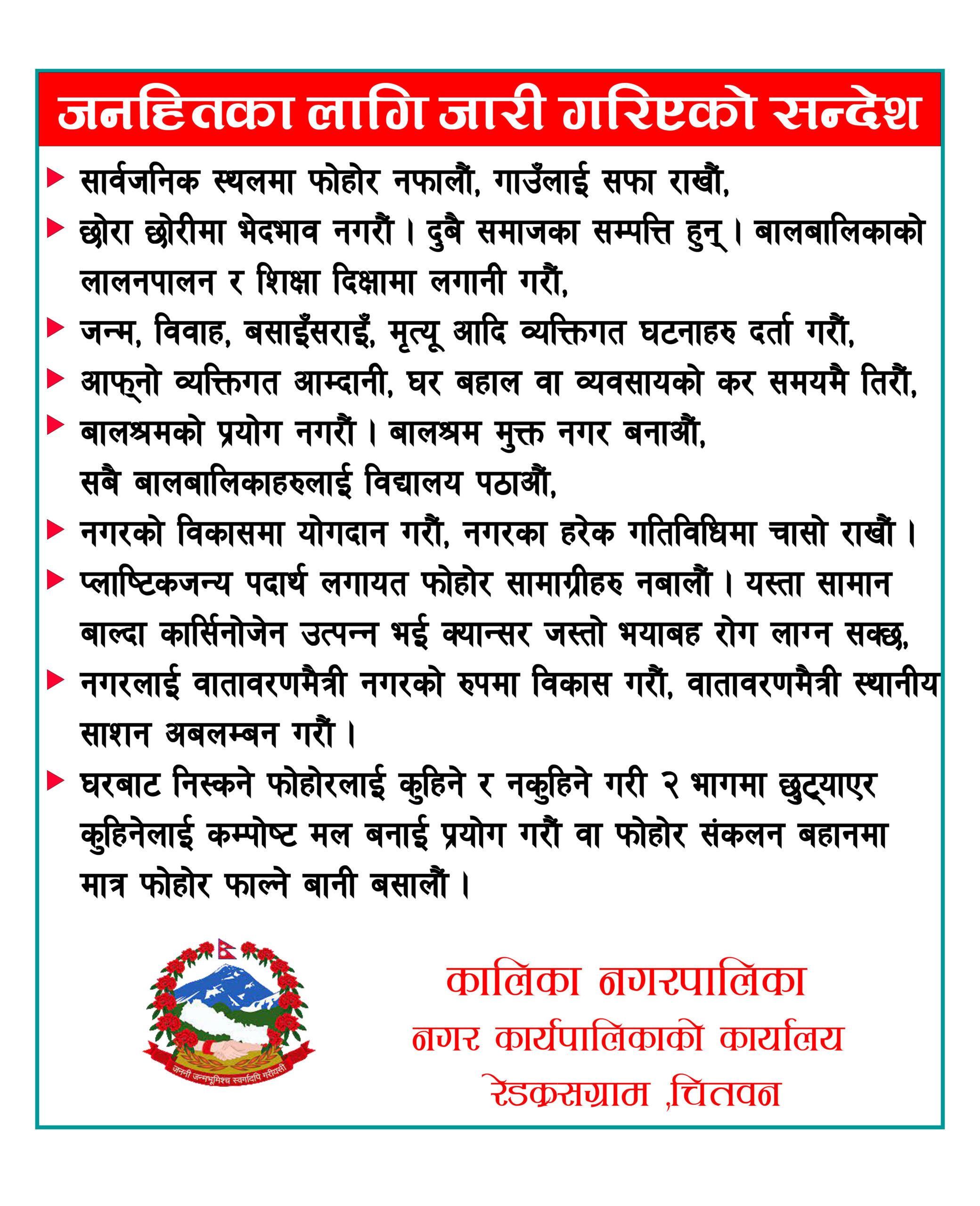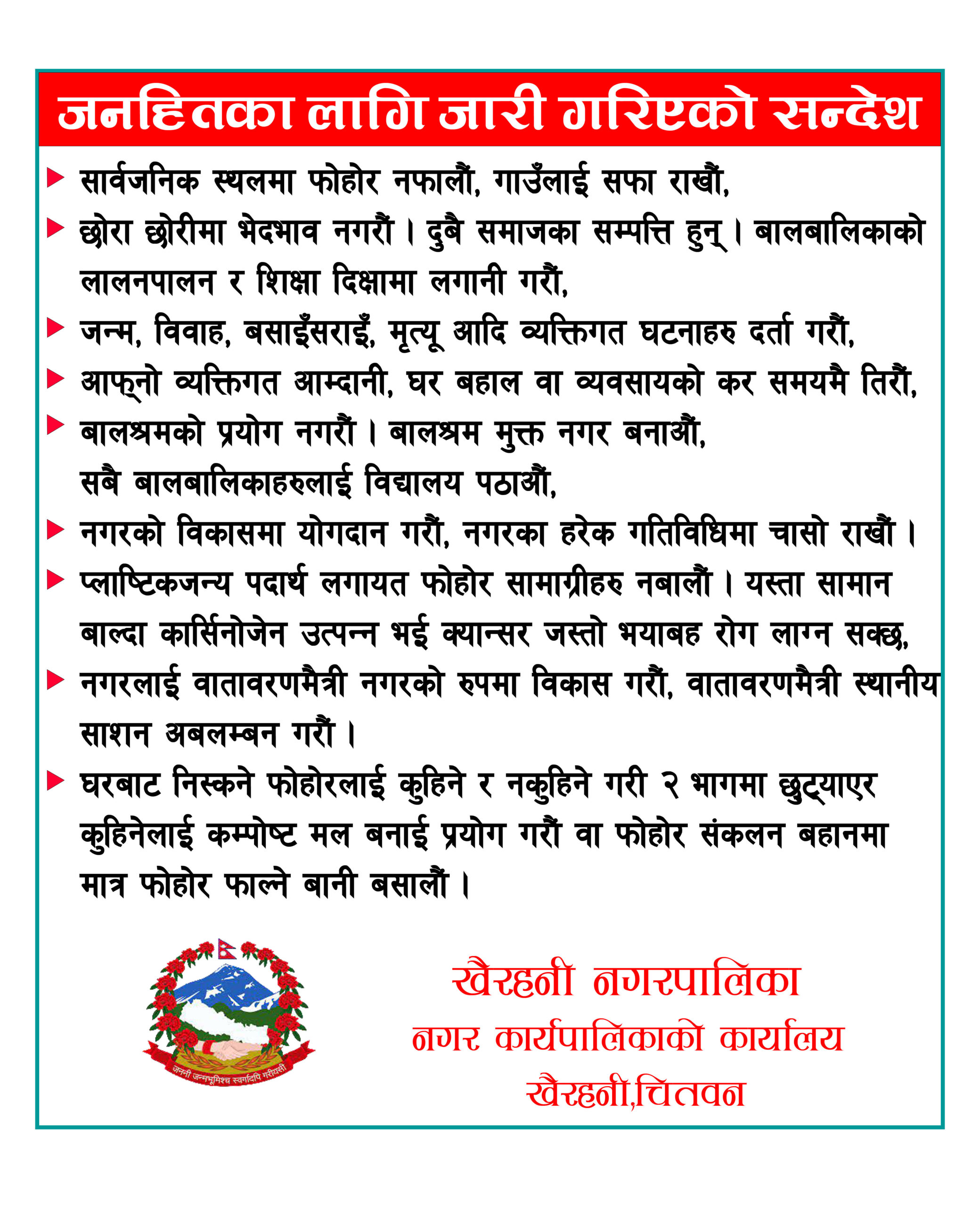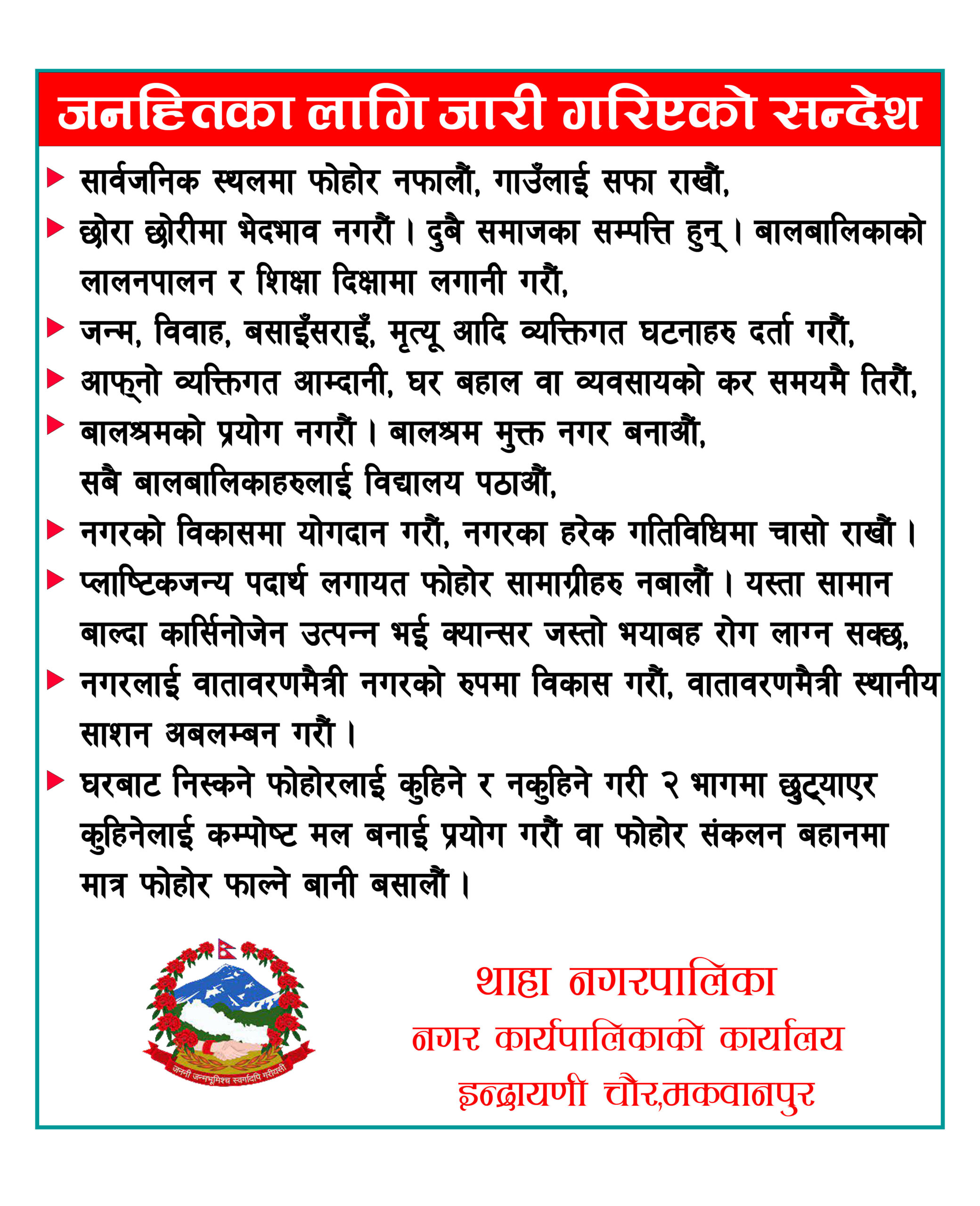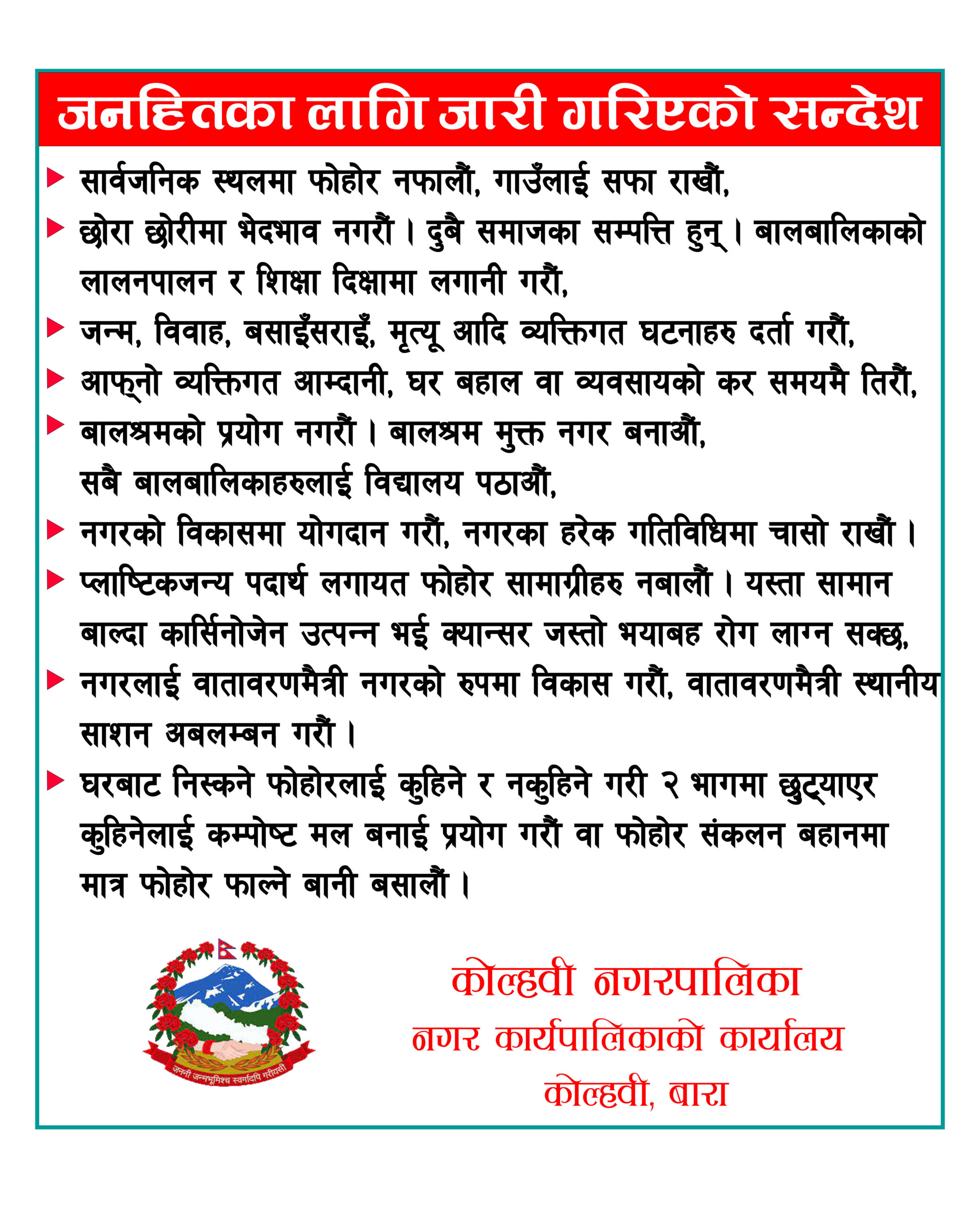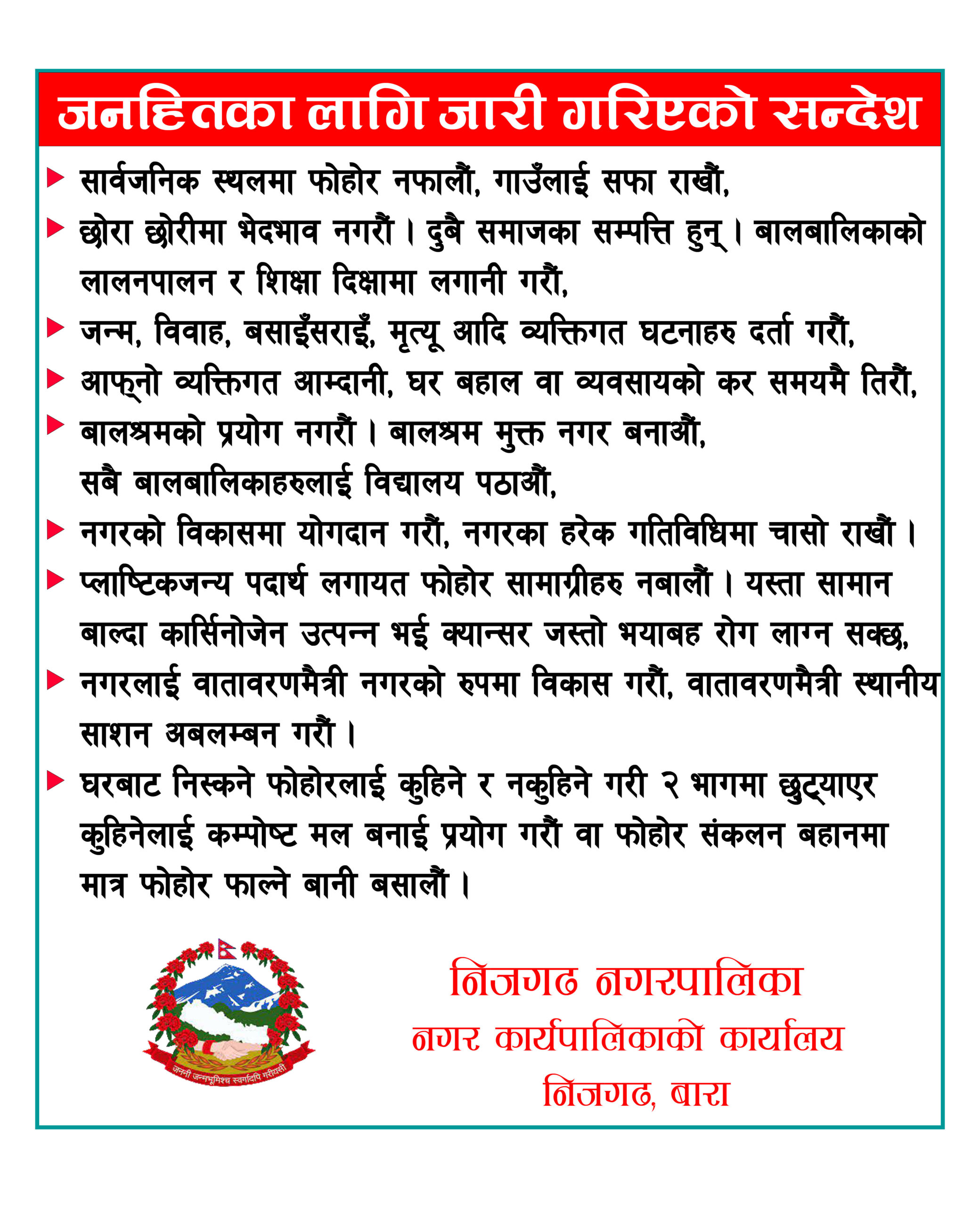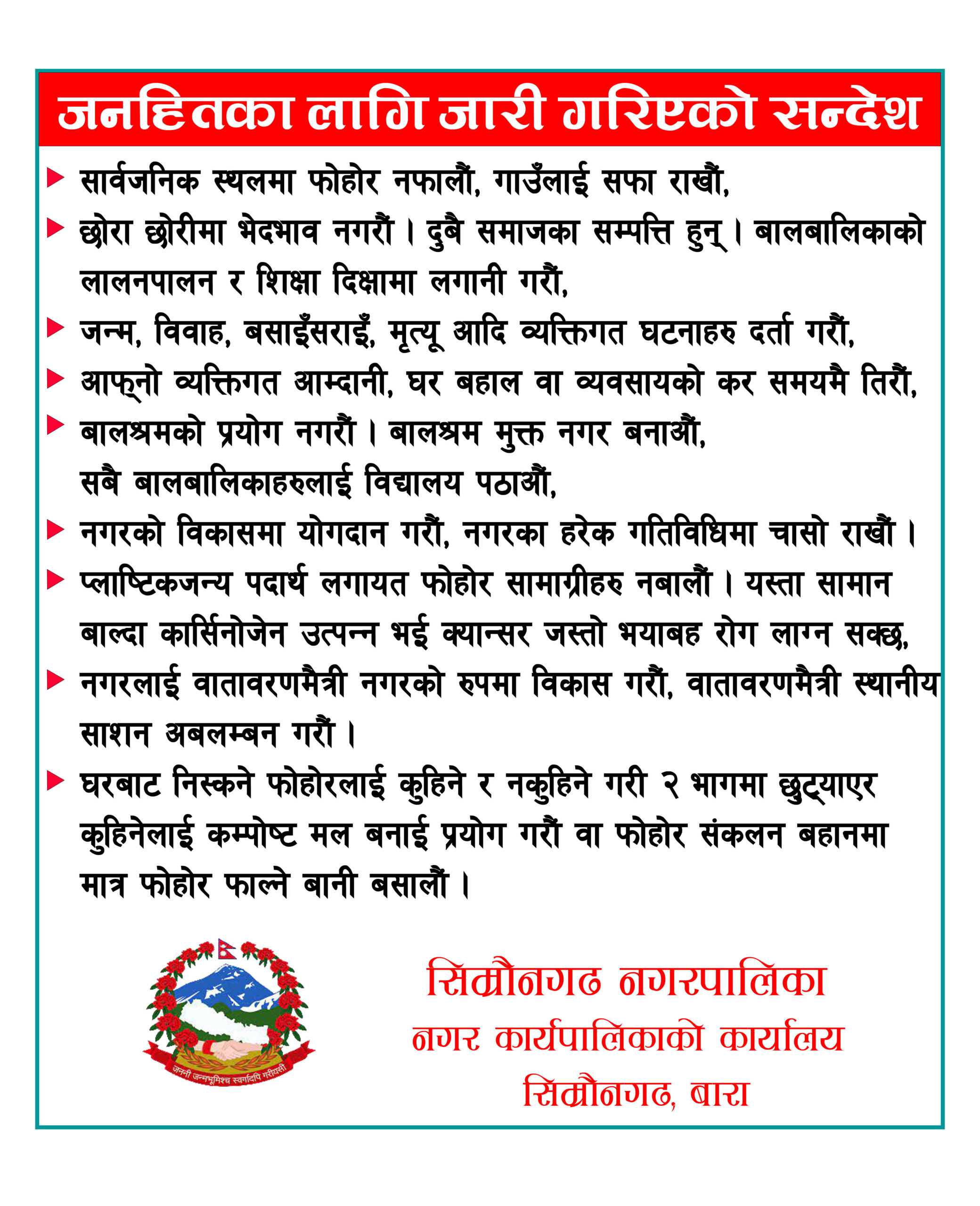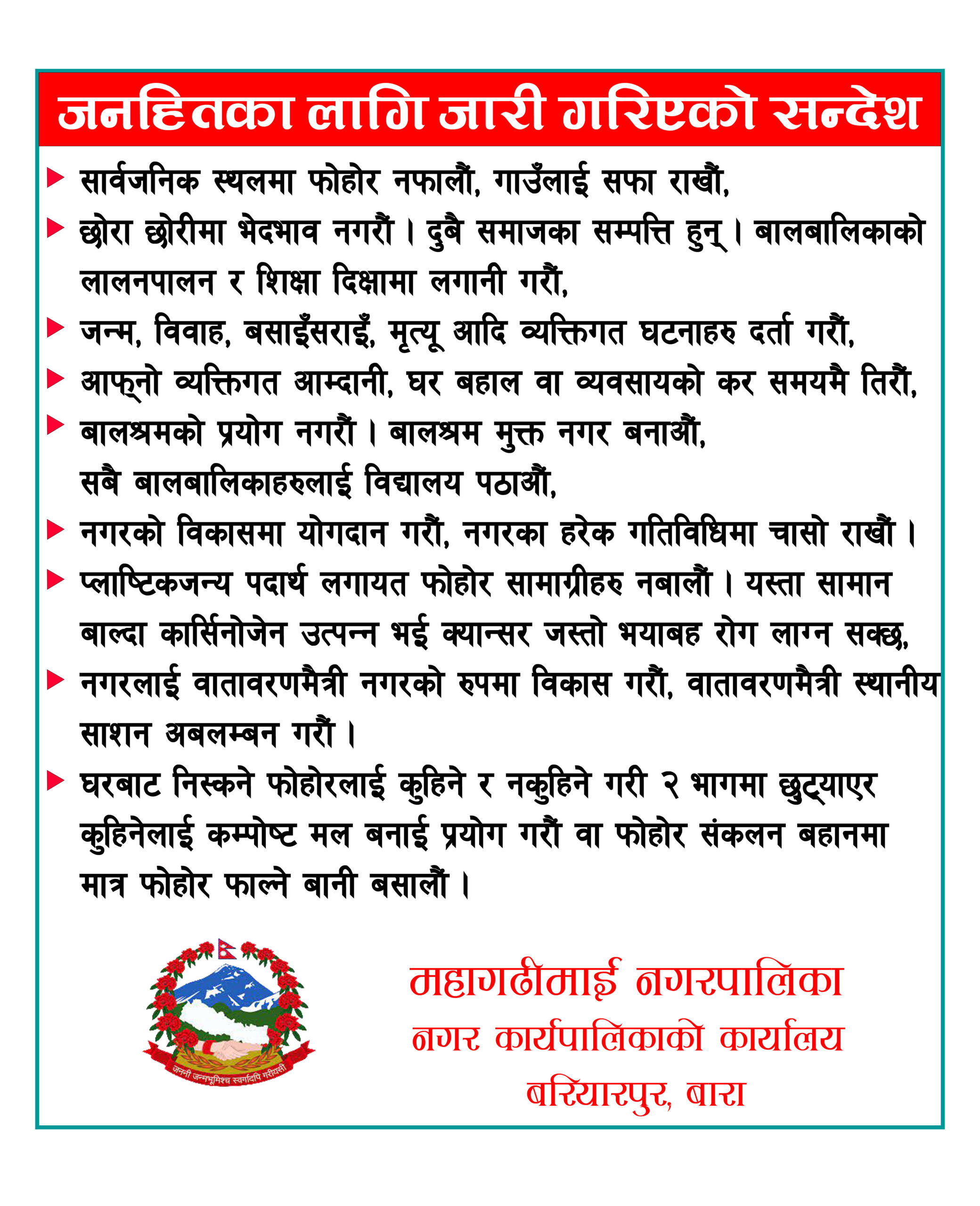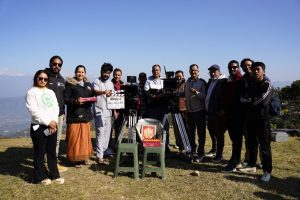Kathmandu
The 2nd National Conference of Child Club Graduates (CCGs) has demanded a secure and bright future for all children, with a focus on the most vulnerable, disadvantaged, and marginalized groups including girls, children with disabilities, children from endangered and indigenous communities, and LGBTIQA+ children. The conference organized from 5-6 December 2023 was successfully concluded, with the endorsement of the 22-point declaration paper, focusing on the perception, demands, and commitments of all the participants of the program, with focus on promotion of agendas like Youth Friendly Local Governance, Child Friendly Local Governance, Climate Justice, Disaster Risk Reduction, girls empowerment, Ending child marriage, Youth entrepreneurship, Sage Migration, Human Trafficking, Youth and Child Rights Defenders, Sexual and Reproductive Health Rights, Peace and Security, Social protection, youth participation, and so on with the effective implementation of the existing legal provisions.
160 young people, between the ages of 19 and 25 from 60 districts, covering all seven provinces, Government representatives, people with disabilities, LGBTIQA+, and other stakeholders participated in the event. 50% of the participants were female.
Child clubs, serving as platforms for children to voice opinions and impact decisions, have surged in Nepal, with over 80 Lakhs children affiliated in around 23,000 active clubs. Graduates from these clubs, known as Child Club Graduates (CCGs), play a vital role in promoting child rights and governance, yet their contributions often go undocumented and unsupported. This conference was organized by Jagriti Child and Youth Concern Nepal (Jcycn) jointly with the National Youth Council (NYC), National Child Rights Council (NCRC), Changa Foundation, Yuwalaya, YAV Nepal, Creative Society Nepal, Concern Society Nepal, and solidarity of various child rights networks, Civil Society Organizations and Development partners including National CFLG Forum,Looniva, WOREC Nepal, SPCSN, CWIN, SAATHI, ADRA, KIDARC, and so on. To enhance the competence of CCGs and highlight their roles in social development. The program was jointly supported by UNICEF, Care Nepal, Child Fund Japan, WSM, World Vision International Nepal, Save the Children, TDH Germanyand KANALLAN.
Bipana Sharma, Member Secretary of National CFLG Forum, hosted the opening ceremony, chaired by Mr. Tilottam Paudel, President of Jcycn and coordinator of the Conference. Honorable Ganesh Prasad Timilsina Chairperson of National Assembly was present as the chief guest. He expressed best wishes for the successful completion of the conference, and expressed commitment for progressive policy interventions for uplifting rights of youths and children.
Usha Mishra Hayes, Chief, Policy, Governance, and Evidence of UNICEF-Nepal, and Bam Bahadur Baniya, Vice President of the National Child Rights Council stressed the importance of increased investment in young people for a sustainable future, expressed their solidarity for the promotion of child and youth rights in Nepal and encouraged the participants to delicately contribute in the right based movement.
Roslyn Gabriel, National Director of World Vision International Nepal, said that she has observed strong partnerships between adults, youth, adolescents, and children in Nepal and encouraged all to ensure that this continues in the days to come.
On 5th December, three parallel panel discussions were held on themes: Sexual Reproduction, Health and Rights, GEDSI (Gender Equality, Disability, and Social Inclusion) and Social Security, Civic Engagement, Youth Leadership, and Entrepreneurship. A plenary discussion on the Role of CCGs in Movement building was held with the presence of Gauri Pradhan, Conceptualizer of Children are Nation Pride, Surendra Basnet, Executive Vice Chairperson, National Youth Council, Ram Prasad Subedi, President, of NGO Federation, Binita Karki, Head of Solution Mapping, UNDP, Manu Nepali fromSwatantrataAbhiyan, and Urmila Chaudhary, President, Freed Kamlahari Development Forum as speakers.
Ms. Rejina Gharti Mager hosted the experience sharing of the CCGs working in different settings was held on the final day, were Mr. Sahil Ansari, Mr. Mohan Dangal, Ashok Siwakoti, Mr. Prabin Silwal, Ms. Bhawana Paudel shared their story of engagement as a child club graduate. Parallel panel discussions were held on the themes: Girls Empowerment and Ending Child Marriage, Online Access and Safety and Promotion of Child Club and Child Participation in the Changing Context, followed by a Plenary discussion on Climate Justice, Children and Youth (DRR).
Honorable Ranju Jha, Coordinator, Parliamentary Forum for Child Rights was present as the chief guest of the closing ceremony, hosted by Mr. Ranjan Paudel.Mr. Janak Raj Sharma, Under Secretary, Ministry of Federal Affairs and General Administration, Indra Devi Dhakal, Member Secretary, of National Child Rights Council, Mamta Bista, Under Secretary, Ministry of Women, Children and Senior Citizens, Mr. Meen Bahadur Shahi, Chairperson of Human Rights Alliance and Former Member of National Planning Commission and Dr. Netra Timalsina, Word Social Forum, Coordinator were present as guests of the closing ceremony. They expressed solidarity on the event, and stressed the need of legal and policy implementations with dedicated engagement and innovations of youths for bringing positive change.
The conference underscored the crucial role of child clubs and their graduates in advancing child rights and Child-Friendly Governance in Nepal, through effective mobilization and engagement of all the stakeholders.
The 22-point declaration endorsed by the Conference:
1. The enactment of the constitution has unveiled fresh prospects in child rights, youth empowerment, economic growth, social development, and democratic practices. To strengthen the democratic structure of Nepal and advance child rights, youth employment, and participation, we pledge our commitment to vigilantly engage, support, and collaborate with local government and political entities in innovative and constructive ways.
2. Children are the fundamental aspects of human rights, the rule of law, and democracy. We firmly urge governments across all three levels to boost investments in children, enhance the institutional growth of child clubs, and prioritize children in shaping policies, plans, and programs, by ensuring mandatory child-friendly consultations in decision-making processes.
3. Aligned with the National Youth Council’s action plans and policies, we encourage Child Club Graduates to foster an environment conducive to active participation, engagement, and utilization of their skills within the youth councils established at provincial and local levels. Furthermore, we appeal to CCGs to join the Youth-Friendly Local Governance campaign, assuring our complete support for this initiative.
4. To mitigate the effects of climate change on children, adolescents, and young individuals, we urge the government to expedite actions and amplify investments by formulating policies, plans, and programs centered on the well-being of children.
5. We appeal to all levels of government, development partners, political parties, and stakeholders to collaborate with CCGs in strategizing, executing, and overseeing initiatives, maximizing the utilization of skills and knowledge acquired through participation in child clubs.
6. We encourage everyone to actively support the empowerment, participation, and leadership growth of girls and adolescents. Simultaneously, we highlight the imperative role of children, adolescents, and young men in combating sexual violence, particularly the elevated rates of violence against girls, adolescents, and gender and sexual minorities.
7. To emphasize that the youth represent the future of our nation, we urge the promotion of youth entrepreneurship, innovative initiatives, the provision of technical education, and the heightened involvement of young individuals.
8. The rise in urbanization and the gradual development of cities and transport infrastructure in Nepal have led to increased internal mobility among youth, children, and adolescents seeking educational, employment, and developmental prospects. We believe that current policies and laws insufficiently cater to urban poverty, specifically for children, youth, and adolescents residing in temporary urban settings. There’s a clear gap in their access to state opportunities, protective facilities, and social security provisions, inadequately addressed by urban local government programs. We call for all local governments in Nepal to enact necessary policies and programs, implement child-sensitive social security measures, and ensure the provision of survival, protection, development, and participation opportunities for all Nepali youth, adolescents, and children at the local level.
9. Though improvements have been observed in addressing violence against children, child sexual abuse, and labor exploitation compared to the past, there’s been minimal progress in combating sexual harassment, exploitation, abuse, trafficking, and child labor within informal sectors. We urge relevant agencies to rectify inaccuracies in the Children Act, 2075, and the National Civil Code promptly. The current programs lack effectiveness due to a lack of effective legal frameworks against discrimination, corruption within the security and administrative systems, family illiteracy, poverty, limited awareness and life skills, and inadequate social and economic education among children and adolescents. Hence, we call upon the Government of Nepal to engage young citizens in initiatives promoting youth entrepreneurship, employment, skill development, and quality education opportunities at the local level. This includes establishing and enforcing anti-discrimination laws, ensuring robust implementation of criminal laws, and controlling corruption.
10. Integrating child participation has notably enhanced the democratic, transparent, and child-centered aspects of both local and national planning. Hence, we advocate for the comprehensive involvement of children and youths not just in the planning stages but also in the subsequent implementation and monitoring phases. We pledge our dedication to advocate, oversee, and creatively engage in fostering child-friendly and youth-friendly local governance. To facilitate this, we propose a mandatory allocation of a minimum of 10 percent of the total budget at the local level for children. Additionally, we recommend prioritizing CCGs for roles such as child-friendly facilitators and other essential responsibilities within the local framework.
11. The Children’s Club serves as a platform fostering civic consciousness and responsibility, cultivating competent and responsible citizens, and nurturing a harmonious democratic culture. CCGs embody active citizenship, capable of contributing significantly to their communities, villages, cities, and across local, state, and federal levels as resilient, adept, and engaged youths. We urge youth movements and campaigns to establish robust and conducive environments, along with policies that bolster the involvement and active engagement of CCGs.
12. There is a lack of sufficient knowledge, education, skills, and awareness concerning sexual and reproductive health rights among adolescents and youths. We call upon federal, provincial, and local governments, as well as development partners, to integrate comprehensive sexuality education into school curricula and child club discussions for youths and adolescents. Additionally, we advocate for enhanced participation of girls and teenagers in associations such as sports, Junior Red Cross, and scouting. CCGs are dedicated to contributing to this endeavor as agents of social awareness, local advocates, and supportive allies.
13. Our observation indicates that children and young people have limited and insecure access to information technology, which, in some instances, is being utilized in hazardous ways. Due to the misuse of information technology and a lack of technical know-how, youths and children have inadvertently become involved in fraudulent, abusive, exploitative, and criminal activities facilitated through these means. We call for the formulation of policy and programmatic arrangements, inclusive of budget allocations, to ensure secure, user-friendly, and uninterrupted access to high-quality information technology for youth, adolescents, and children throughout Nepal. This access should primarily serve educational and self-development purposes. To address risks faced by children, we urge the government to take legal and practical actions that prioritize children’s safety.
14. Each year, millions of Child Club Graduates (CCGs) emerge from child clubs, equipped as proficient, engaged, and skilled proponents, overseers, and facilitators within the local child rights movement. We implore all stakeholders involved in the Child Rights Campaign, including the National Child Rights Council, private sector entities, and corporations, to champion child participation, actively practice child rights, and collaborate with CCGs at the grassroots level. Furthermore, we advocate for expediting the establishment of Province-level Children’s Rights Councils across all provinces, ensuring the swift continuation of this process.
15. It has been 12 years since the inception and implementation of the School Peace Zone Guidelines. In both the Act relating to Children, 2018, and the Political Parties Act, 2073, there are legal stipulations prohibiting children from being involved in party politics. Furthermore, it is explicitly stated that holding party programs within schools and disrupting school operations is prohibited by law. However, our observation reveals a lack of information dissemination regarding schools as a Zone of peace in many areas, with political organizations and parties demonstrating inadequate commitment to this cause. Hence, we appeal to all political entities and organizations to maintain schools as apolitical spaces, respecting children’s political freedoms ensuring fairness, and fostering collaboration for school development and the assurance of education for all. Additionally, we assert that actions conflicting with the principles of school as a Zone of peace should be legally addressed as criminal offenses, specifically considering crimes against children.
16. The Sustainable Development Goals serve as the foundation for fostering human rights-centered, democratic, and inclusive development opportunities. We advocate for the establishment and execution of children’s rights and youth development programs aligned with the spirit of the Sustainable Development Goals. Furthermore, we urge local governments to devise and execute programs focused on children and youth, structured upon the Sustainable Development Goals and their corresponding indicators. In this endeavor, we pledge our commitment to serve as facilitators and supporters to local governments and development partners, contributing to their efforts in aligning with these objectives.
17. Child marriage remains a critical concern affecting all groups of youth, adolescents, and children. While forced marriage has decreased, there is a rising trend of self-initiated marriage due to insufficient sexual and reproductive health information and life skills education. Hence, we call upon the Nepal government and development partners to devise a comprehensive plan, backed by investments, aimed at eradicating child marriage by 2030. This plan should encompass peer education initiatives, local monitoring, rigorous enforcement of policies and laws concerning child marriage, life skills education, enhanced sexuality education, poverty alleviation measures, youth employment programs, and the provision of free and mandatory secondary education. CCGs are steadfast in their commitment to spearheading a unified campaign against child marriage, conducting local awareness initiatives, and actively monitoring activities aimed at addressing this issue.
18. Natural and man-made disasters, along with climate change, disproportionately affect the lives of children, adolescents, and young individuals compared to others. Notably, Child Club members and their graduates have demonstrated efficiency and effectiveness in disaster risk reduction efforts, actively engaging in relief distribution during disasters, organizing protective measures, and fostering resilience. Consequently, we earnestly urge all levels of government and collaborative partners to prioritize the participation and engagement of Child Clubs and their graduates in developing plans for disaster risk reduction and climate change initiatives.
19. Research has highlighted that engaging in early participation within the family and community significantly contributes to fostering children’s personality development, political ability, and interpersonal understanding. Families and communities embracing child participation exhibit traits of being child-friendly, inclusive, and democratic. To further encourage the practice of child participation within families and communities, we urge the government of Nepal, local governing bodies, and development partners to implement effective programs aimed at cultivating a culture of child participation. These initiatives should encompass positive parental education, specialized training for children, and policy frameworks designed for community engagement. We are committed to assuming roles as facilitators, trainers, and advisors, assisting families, community leaders, and children themselves in fostering and embracing participatory practices.
20. The insufficiency of local employment opportunities has led to a significant portion of the younger population seeking foreign employment. Consequently, this trend has given rise to challenges such as a scarcity of local workforce, the emergence of a consumer-driven economic culture, familial fragmentation, and the compromise of children’s rights to paternal care and affection. To address this critical scenario, we strongly advocate for the encouragement of local entrepreneurship, the creation of job opportunities, and the facilitation of financial accessibility to promote local income generation and economic development initiatives. Additionally, we emphasize the necessity for programs aimed at family reunification, counseling services, and the deployment of local social workers. These measures are vital to ensure the safety and promising future of children amidst these circumstances.
21. We extend our sincere gratitude to the development partner organizations, the Nepal Government’s National Youth Council, the National Child Rights Council, and esteemed experts and resource persons for their invaluable financial and technical support extended towards the success of the Second National Conference of Child Club Graduates. Additionally, we express our appreciation to the Speaker of the National Assembly, Honorable Ganesh Pradas Timilsina, Honorable Member of the Federal Parliament Ranju Jha, diverse ministries, council officers, staff, and all attendees for their presence and encouragement during the event.
22. We earnestly urge all relevant entities, including development partners, the private sector, and non-governmental organizations, to tangibly execute the resolutions derived from the National Conference of Child Club Graduates. We encourage all child club graduates to actively facilitate the implementation and monitoring of this conclusion.
The president of Jcycn remarked that the conference concluded with a call to relevant stakeholders to address the issues outlined in the 22-point declaration. He emphasized that the event reinvigorated CCGs across diverse occupations and fields, motivating them to actively contribute to safeguarding and advancing child rights.








